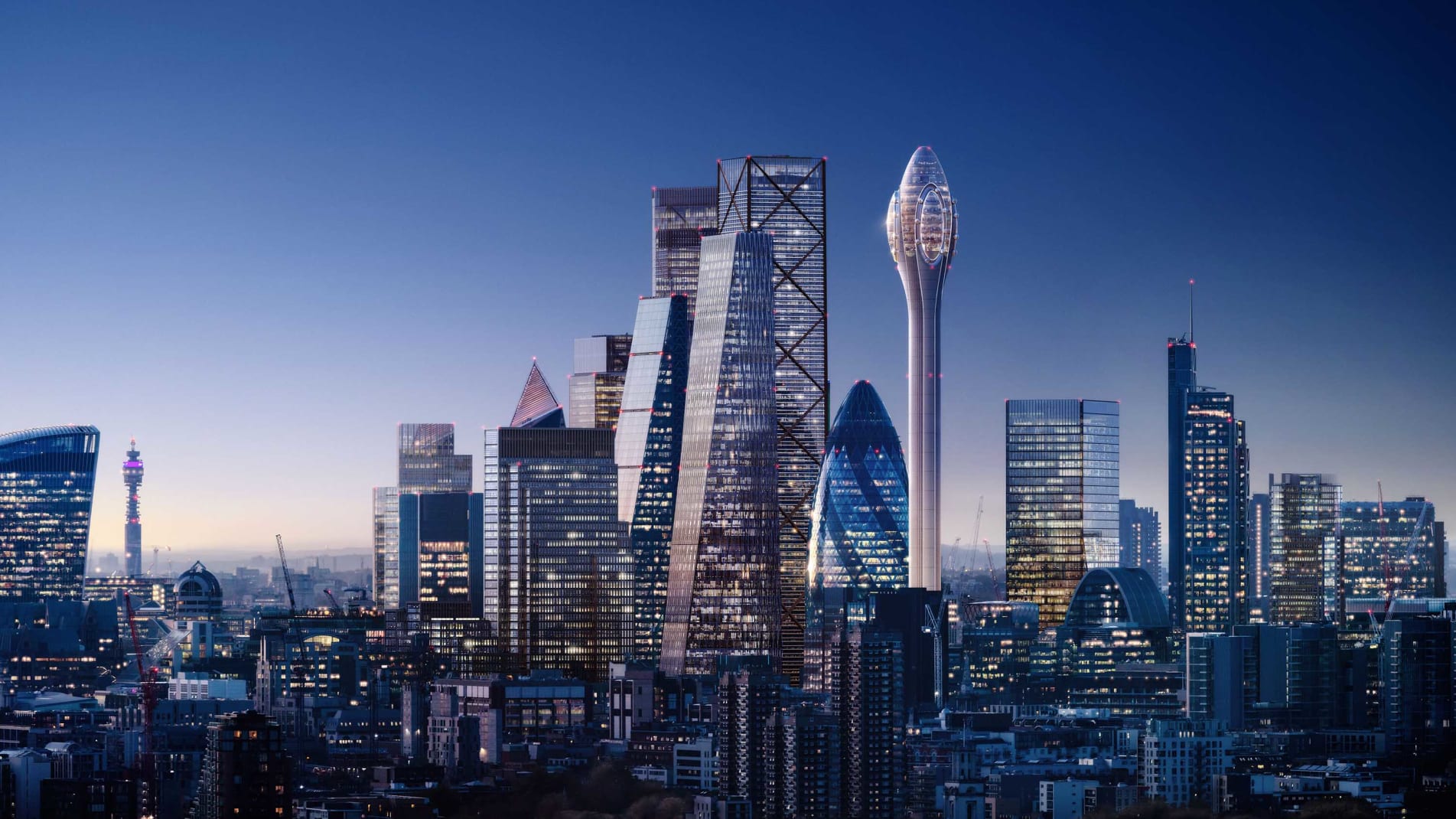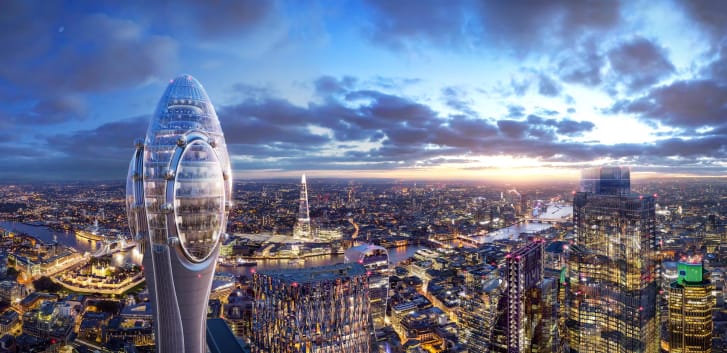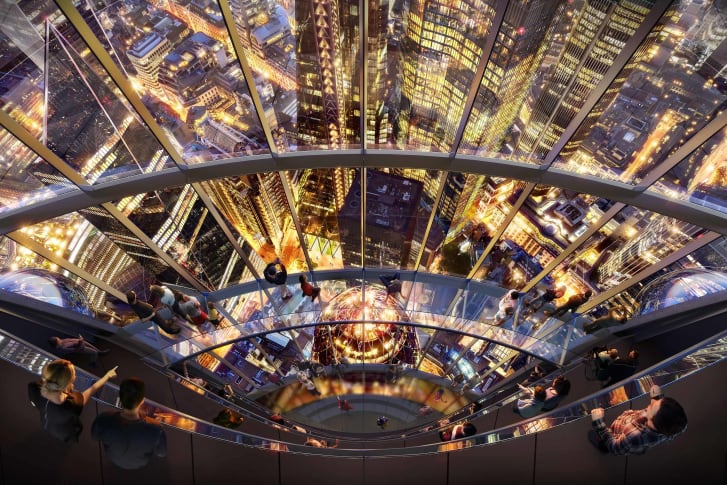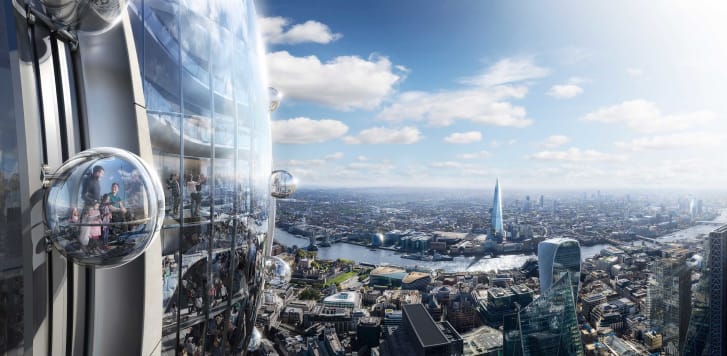First there was the Gherkin, then the Walkie-Talkie and the Cheese Grater. Now London is set to get a skyscraper known as the Tulip.
Written byJack Guy, CNNLondon
Updated 2nd April 2019
This story has been updated after The City of London Corporation approved plans for the Tulip.

The City Corporation, which governs the City of London, approved plans for the new tower on April 2, around four months after British architects Foster + Partners revealed designs for the 305-meter (1,000-feet) edifice.
Its Planning and Transportation Committee voted 18-7 in favor of the project in the financial district, according to a statement.
However there are a number of planning conditions in place. These include "off-peak servicing to limit the number of vehicle deliveries at busy times, ticket sale restrictions during peak hours to avoid pedestrian congestion, accessible facilities for disabled persons, concessions for young children, students and senior citizens, and stringent internal and external security measures."

Visitors will be able to look down over London from around 300 meters up Credit: DBOX for Foster + Partners
Planning Committee Chairman Chris Hayward said that the Tulip is a "truly unique visitor attraction" that will bring people into the city's financial district on weekends, with around 1.2 million visitors expected per year.
"This building has the potential to play an important role in realizing our vision of the Square Mile as a vibrant 24/7 city," he said in the statement.
Work on the building could begin by 2020 and finish in 2025. It will become the second tallest building in the British capital, and the whole of western Europe, after the Shard.
The Tulip will stand next door to 30 St Mary Axe, better known as the Gherkin, which was also designed by Foster + Partners. Instead of hosting office or commercial space, however, the new structure will become a cultural and educational resource, according to the architects.
Plans show a tall stem topped by a glass bud, which will house viewing galleries, a bar and restaurants offering 360-degree views of the city.
Visitors will be also able to enjoy internal slides and ride in viewing pods at the top of the tower, plus there will be an educational facilities for local schoolchildren, with 20,000 free visits offered per year. The scheme will be funded by billionaire Jacob J Safra, who also owns the Gherkin.

The tower aims to attract tourists to London's financial district Credit: DBOX for Foster + Partners
"We are delighted to benefit from the exceptional talent of Foster + Partners in bringing to London this world-class visitor attraction," said Safra in a statement. "The Tulip's elegance and soft strength complements the iconic Gherkin."
The new tourist attraction would fit in with local authority plans to create a so-called "Culture Mile," which would bring more visitors to London's financial district.
A small park and a two-story pavilion housing a public rooftop garden on the site will also help to attract visitors to the area, according to the plans.
"Continuing the pioneering design of 30 St Mary Axe, the Tulip is in the spirit of London as a progressive, forward-thinking city," said Norman Foster, Founder and Executive Chairman of Foster + Partners, in a statement.
"It offers significant benefits to Londoners and visitors as a cultural and social landmark with unmatched educational resources for future generations."

The Tulip will offer rides in external gondola pods Credit: DBOX for Foster + Partners
At 305 meters tall, the Tulip will stand just short of the 306-meter Shard across the River Thames. Another planned skyscraper, 1 Undershaft, which is yet to acquire a nickname, will be 304 meters tall.
The height of buildings in the city's financial district are restricted by flight paths into London City airport.